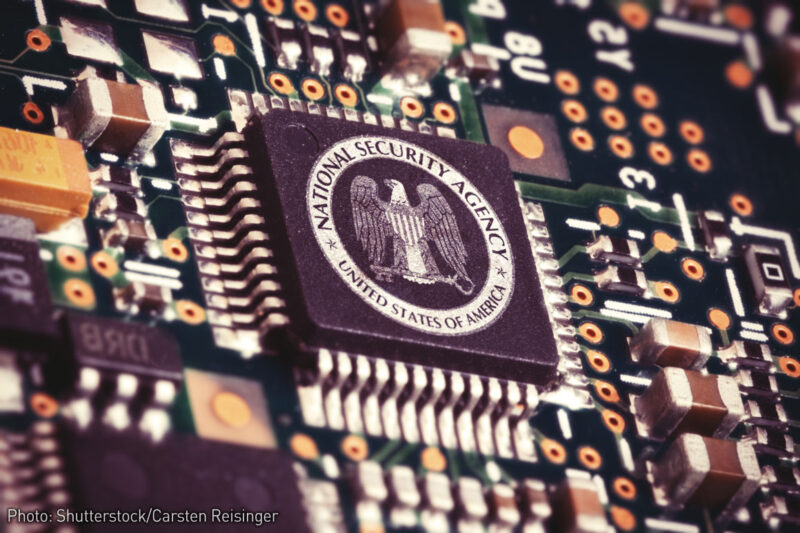
The election is over, and the 115th Congress will face many vital decisions regarding our civil rights and civil liberties.
One such decision looms large. Next year, Congress must decide whether to reauthorize Section 702 of the Foreign Intelligence Surveillance Act (or “FISA”), one of the most sweeping surveillance authorities ever enacted. Congress has already begun to hold public hearings concerning Section 702 as it prepares to decide whether this surveillance law should be extended, overhauled, or scrapped altogether.
But there is a critical problem: the public is still in the dark about basic facts concerning Section 702. And that’s why we’re filing a Freedom of Information Act lawsuit today, seeking information that Americans need in order to take part in the debate and hold their representatives accountable.
Here’s what we do know: Section 702 permits warrantless surveillance of Americans’ international communications — and the government has used that authority to seize and search the personal communications of Americans and others on an immense scale. To do so, the government doesn’t need individualized court approval or any suspicion of wrongdoing whatsoever.
The surveillance is carried out through at least two programs, “PRISM” and “Upstream.” Through the PRISM program, the government compels electronic communications providers — like Apple, Facebook, and Microsoft — to furnish communications sent to or from a foreign target’s account, such as emails that individual exchanges with family, friends, or business associates in the United States. Through Upstream surveillance, the government intercepts international telephone calls and internet communications as they are routed across communications networks inside the United States. As we explained recently, Upstream surveillance of Americans’ internet communications represents a new surveillance paradigm — one in which the NSA’s computers constantly scan our communications for information of interest to the government.
But we still don’t know the full extent of these programs and precisely how they are implemented today. Although it is clear that this surveillance is far-reaching, we don’t know how many Americans have had their private emails or other online communications collected in government databases. We also don’t know the complete set of rules that agencies like the FBI, NSA, and CIA use when they rely on this surveillance to investigate American citizens and residents.
We submitted a Freedom of Information Act request in September to help us answer basic questions like these. We asked the NSA, CIA, DOJ, and the Office of the Director of National Intelligence to search their records for relevant documents and to disclose what they found. This information is urgently needed, we emphasized, because congressional hearings about reauthorization are already underway. But to date, nearly all of the agencies have failed to respond to the request, despite their statutory obligation to do so.
That’s why we’re going to court — in order to compel the government to release much-needed information about Section 702 to the public, as FOIA requires. This surveillance law is scheduled to expire next year, and before a decision on reauthorization is made, both Congress and the public must fully understand the law’s impact on core privacy and free speech rights of Americans. It is only then — with a complete picture of what is at stake — that Congress can weigh how best to reform this expansive surveillance authority.




